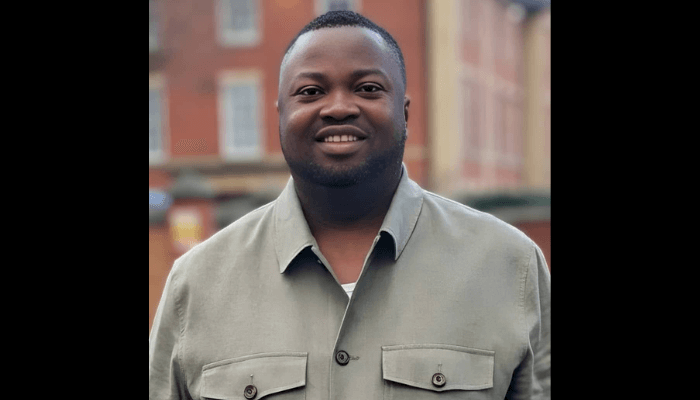Technology can detect fraud, but only humans can interpret intent – Ayoola
…Afolabi on Fraud Prevention, Innovation, Building Trust in Financial Systems
In an era where financial technology evolves faster than regulation, Ayoola Afolabi, a Nigerian-born UK-based technology and fraud-prevention professional, stands strategically at the intersection of innovation, risk intelligence, and empathy. In this interview with BusinessDay Weekender, the Fraud and Change Professional at Barclays UK shares insights from his journey across Nigeria and the UK, reflecting on what it takes to build safer, smarter, and more human financial systems.
Before becoming popular as an international professional in the Fraud and Financial Technology space, Ayoola Afolabi cut his teeth by getting a degree from Obafemi Awolowo University, Ile-Ife, before racking professional experience at FBN Capital and Diophantus Nigeria Limited.
Speaking on how his journey started, the Osun indigene traces it back to fascination with systems and their impact on humans.
“My journey into tech and banking has been quite organic,” Afolabi says. His fascination with how systems connect people led him from early digital banking tools in Nigeria to more complex fraud-detection platforms in the UK.
“What drew me to fraud prevention was seeing how technology could be used not just to move money faster, but to protect people better. Fraud prevention sits at the intersection of technology, psychology, and ethics, and that’s what keeps it endlessly interesting for me.”
Having experienced both the Nigerian and British banking ecosystems, Afolabi recognises their strengths and gaps.
“Nigeria’s banking system is one of the most dynamic in Africa. It is fast, innovative, and adaptive,” he notes.
Yet, the pace of innovation can outstrip regulatory coordination. “In the UK, data-sharing protocols between banks and regulators are much more structured. Nigeria has the talent and appetite for innovation; what’s needed now is coordinated data governance and predictive fraud-detection infrastructure.”
Experience with fraud prevention in the UK
At Barclays, Afolabi’s approach to fraud prevention is defined by the integration of tools, teams, and technology.
“We’ve implemented multi-layered detection systems that blend rule-based analytics with machine learning. The goal is real-time decisioning—detecting fraud within milliseconds without frustrating genuine customers.”
Cross-training between fraud and change teams ensures operational insight feeds directly into innovation, creating a resilient, customer-centred system.
How Nigeria can follow in UK’s footsteps
Asked how Nigerian banks and fintechs can replicate such systems, Afolabi is clear: “It starts with data quality and collaboration.”
He advocates a three-step strategy—unifying internal data, investing in real-time analytics, and building shared intelligence layers, or what he calls Smart Numbers.
“The technology already exists; what’s needed is trust and regulatory support to make it work collaboratively.”
Contributing his part to helping Nigeria
With his non-executive director role at Diophantus Nigeria Limited, Afolabi helps bridge ideas with impact, leveraging his UK exposure to improve companies and systems in Nigeria.
“One of our flagship projects is FMTspace, a mobile banking app developed for an investment bank in Nigeria. We also built a digital billing and e-tag system for Oniru Estate in partnership with the Lagos State Government. It automates land rate payments and reduces revenue leakages.”
The most rewarding part for Afolabi is seeing Nigerians with requisite skill and awareness create world-class solutions that improve governance and efficiency.
On challenges, balance, and resilience
For a professional with an accomplished CV, there would have been a few tumultuous challenges and Afolabi agrees. He goes on to say, “There were times I felt like quitting. Projects don’t always go as planned, and outcomes can take time. What helped was focusing on process over perfection and surrounding myself with mentors who helped me see challenges differently.”
Reflecting further, Afolabi says what would stand out as his biggest professional challenge is balancing innovation with regulation.
“In fraud prevention, we’re constantly pushing boundaries with AI and data integration, but we must stay compliant and ethical,” he reflects. “It’s a delicate balance—innovating responsibly while maintaining customer trust.”
Smart Databases and helping Nigeria’s financial future
Afolabi’s vision for Nigeria’s financial future revolves around Smart Databases, that is secure, anonymised systems where banks and fintechs can share verified fraud intelligence.
“Imagine a network where a suspicious phone number triggers an alert across all institutions without revealing personal data. That’s how we can reduce scam velocity and rebuild trust in the system,” he explains.
Despite the evolutions that have greeted financial systems across the world, Afolabi remains rooted on one thing, which is that technology must always serve people.
“Technology can detect anomalies, but only humans can interpret intent. That is why empathy is just as important as analytics. At Barclays, our fraud teams are trained to understand distress, recognise manipulation, and support victims. Every alert represents a person.”
Advice for the young professionals toeing his career path
For many young people who are also pursuing a career in finance, fraud detection and technology, the UK-based expert advises:
“Start where you are and stay curious. The future belongs to those who can connect disciplines: tech, risk, data, and empathy. Build integrity early; it’s the one currency that compounds for life.”
Looking ahead, Afolabi sees a future defined by adaptive intelligence – systems that learn in real time across institutions. “The UK is already moving toward AI orchestration and federated learning.”
He adds, “For Nigeria, the opportunity lies in leapfrogging, which is adopting these technologies quickly with local context. Fraudsters evolve daily, so must we.”

